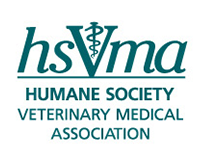HSVMA Sponsoring California Legislation to Prohibit Landlords from Requiring Declawing and DevocalizationMarch 6, 2012 The Humane Society Veterinary Medical Association (HSVMA) is one of the co-sponsors of a California bill, SB 1229, that would prohibit landlords from advertising or establishing rental policies requiring that a tenant’s companion animals be declawed or devocalized as a condition of occupancy. HSVMA is sponsoring this legislation, along with The Paw Project, because it would guarantee important protections for companion animals in California. The bill is authored by California Senator Fran Pavley. "Landlords should not dictate which medical procedures are performed on their tenants’ animals," said Dr. Barbara Hodges, an HSVMA veterinarian who practices in California, "particularly when these surgeries provide no medical benefit."  Many well-meaning clients don't realize declawing is a surgical procedure with possible long-term consequences and not equivalent to a simple nail clip. SB 1229 will protect tenants from being forced to choose between securing housing for their families and subjecting their pets to unnecessary, costly and life-altering medical procedures. HSVMA also is supporting similar legislation in New York (A3362A) which would enact the same provisions regarding declawing. Declawing is amputation surgery that is typically performed to prevent cats from causing scratching damage to furniture and other household items. Because of our concerns about the possible long-term physical and behavioral consequences of declawing to cats, HSVMA advocates the use of humane alternatives, such as scratching posts, nail trims, and nail caps, to address destructive scratching. Devocalization (often called "de-barking"), is another invasive surgery in which all or part of an animal’s vocal chords are cut and removed in order to muffle or silence them. Adverse physical consequences of devocalization can include chronic coughing and gagging, breathing difficulties, and exercise intolerance. Instead, we support the use of behavior modification and environmental enrichment to address unwanted pet vocalization. If you are a California or New York resident, please contact your state elected officials and encourage their support of this important animal welfare legislation. Be sure to mention that you are a state resident and a veterinary professional. Find contact information for your elected officials here. You can also read a copy of the HSVMA support letter for SB 1229 and view a video about the realities of canine devocalization featuring Dr. Holly Cheever, HSVMA Leadership Council Chair. |
